The Arrogance of Power (79 page)
Read The Arrogance of Power Online
Authors: Anthony Summers

66.
A president out of control. At New Orleans, in the fall of 1973, Nixon grabbed press secretary Ron Ziegler, whirled him around, and shoved him toward reporters. His speech and gestures that day led to press speculation that he was either drunk or drugged.
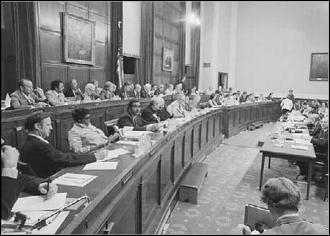
67.
End game, 1974. The House Judiciary Committee voted three articles of impeachment, charging Nixon with offenses warranting trial and removal from office. He avoided facing the charges by resigning.
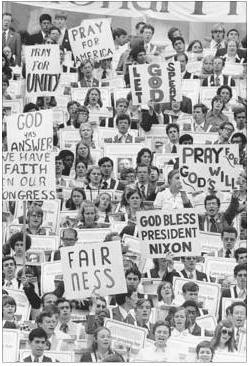

68, 69.
Supporters and opponents took to the streets.
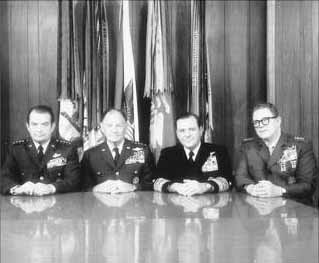
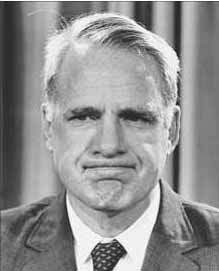
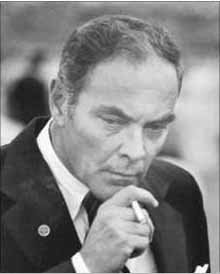
70, 71, 72.
As Nixon's presidency collapsed, there were unprecedented fears and precautions. Defense Secretary James Schlesinger
(below left)
ordered that any military orders emanating from the White House were to be checked with him. Air Force General George Brown told the Joint Chiefs
(above)
there were fears of “some sort of coup.” Nixon's aide Alexander Haig
(below right)
said he feared improper action only by the Congress, not the armed services.
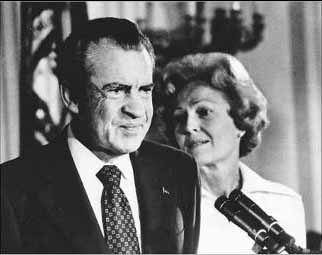
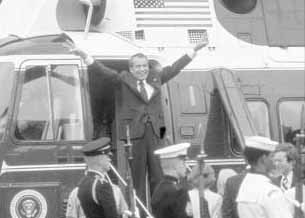
73, 74.
Resignation, August 9, 1974. Pat held back her tears as Nixon made a rambling speech to the staff about his father and his motherâand the importance of never giving up. He bade farewell, in defeat, with the
V
for Victory sign.
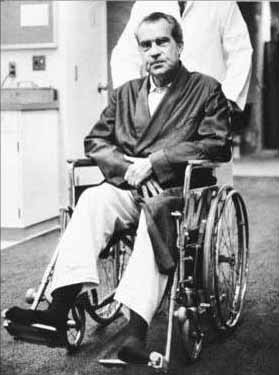
75.
In his first months of “exile,” Nixon came close to death when a blood clot moved from an inflamed vein in a leg to one of his lungs. He was thus spared from appearing as a witness at the Watergate cover-up trial.

76.
He remained isolated in San Clemente, with only a handful of aides, for many months afterward.
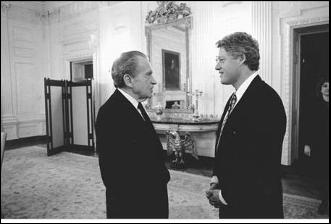
77.
Over the years, Nixon gradually recovered from his disgrace, remaking himself in the image of an elder statesman. He thought his White House meeting with President Clinton, in 1993, “the best I have had since I was president.”
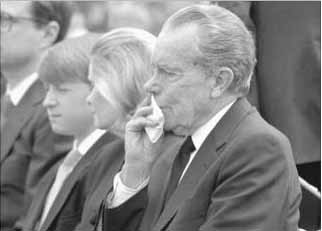
78.
When Pat died in June 1993, her husband's grief was obvious. Holding his hand at one point on the day of the funeral, unrecognized by the press, was the psychotherapist Dr. Hutschnecker.
